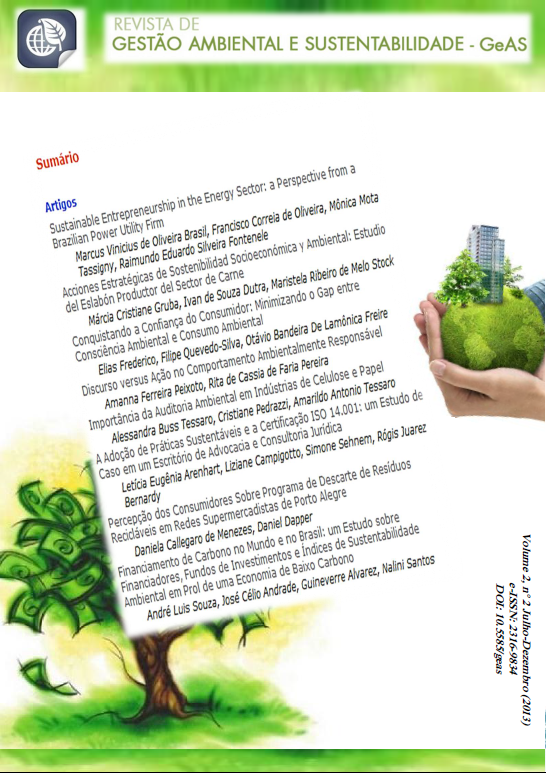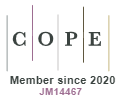Acquiring Consumer Trust: Minimizing the GAP Between Environmental Concern and Environmental Consumption
DOI:
https://doi.org/10.5585/geas.v2i2.67Keywords:
Environmental Consumption, Environmental Concern, Trust, Structural Equation ModelingAbstract
Environmental management has become an important managerial tool for creating conditions for greater competitiveness of organizations. A significant portion of the population considers environmental issues while consuming. However, despite the proposed relationship between environmental concern and consumption, some studies have identified a gap between declared environmental concern and consumer behavior. One possible explanation for this gap is the lack of trust in the ethics of retailers and the perception that environmental appealing offers would be only artifices of marketing. Thus, this paper aims to analyze the moderating effect of trust in the relationship between Environmental concern and environmental purchase intention. To operationalize the study, an online survey was conducted among 696 Brazilian consumers. The sample was characterized as non-probabilistic. Validated scales were used to measure the variables and data were analyzed using structural equation modeling. The results show that there is a significant relationship between environmental concern and environmental purchase intention, however, the low explanatory power of the model points to the gap between discourse and practice. By analyzing the trust of consumers as moderating variable, it is clear that, by increasing consumers’ trust, the gap between environmental concern and consumption is diminished.Downloads
Downloads
Published
2013-12-20
How to Cite
Frederico, E., Quevedo-Silva, F., & Freire, O. B. D. L. (2013). Acquiring Consumer Trust: Minimizing the GAP Between Environmental Concern and Environmental Consumption. Revista De Gestão Ambiental E Sustentabilidade, 2(2), 50–70. https://doi.org/10.5585/geas.v2i2.67
Issue
Section
Artigos
Views
- Abstract 122
- PDF (Português (Brasil)) 72










